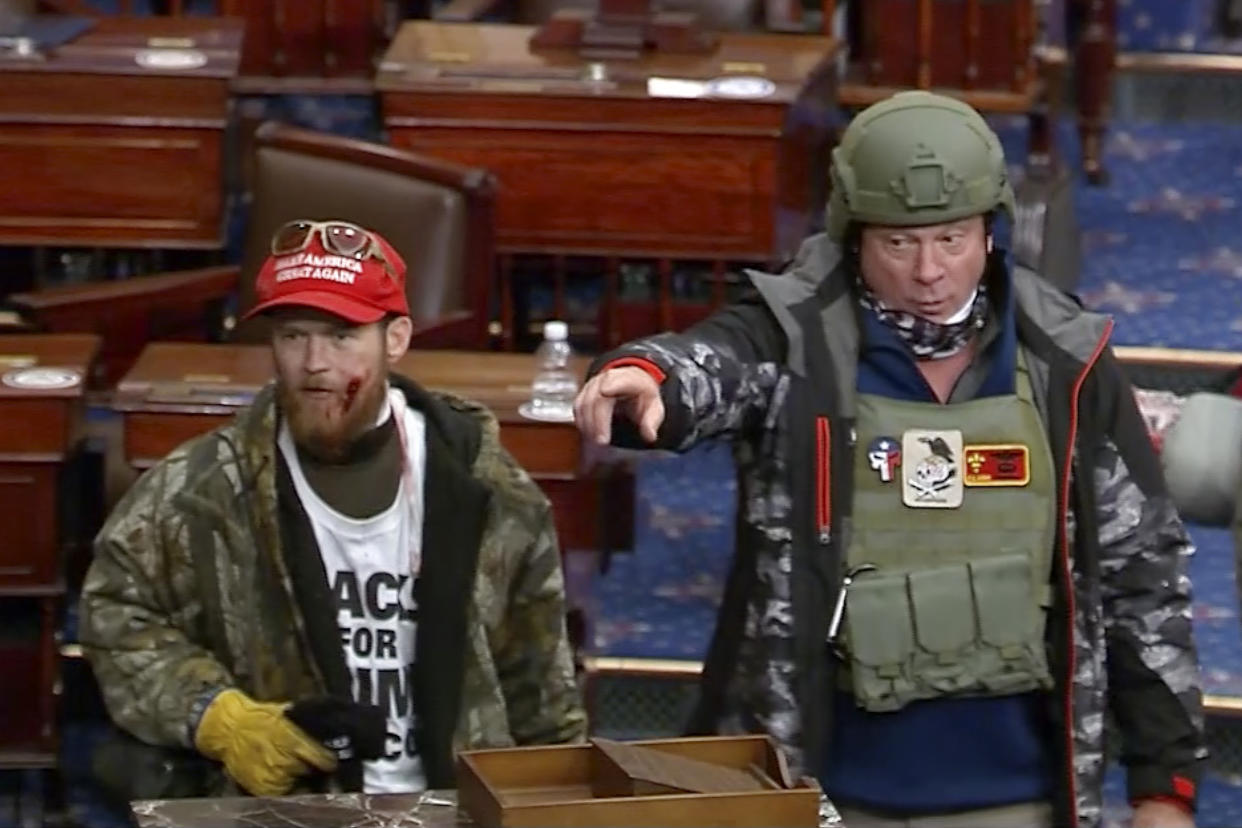Appeals court ruling that vacates Capitol rioter's sentence could impact dozens of Jan. 6 cases

A federal appeals court in Washington has ordered a new sentence for a retired Air Force officer who stormed the U.S. Capitol dressed in combat gear, in a ruling issued Friday that could impact dozens of other cases stemming from the Jan. 6, 2021, attack.
While a panel of the U.S. Court of Appeals for the D.C. Circuit upheld Larry Brock's conviction, the court said a judge wrongly applied an enhancement that lengthened the recommended prison sentence range under federal guidelines.
The enhancement — on the grounds that Brock's conduct resulted in “substantial interference with the administration of justice" — has been applied in more than 100 other Jan. 6 defendants' cases, said Patricia Hartman, a spokesperson for the Washington's U.S. attorney's office. If the ruling stands, those defendants who have not already completed their prison terms may push for new sentences.
When asked whether prosecutors will appeal the ruling, Hartman said they are considering their options.
Brock was sentenced last year to two years in prison after being convicted of a felony charge of obstruction of an official proceeding and misdemeanor offenses. He is currently serving his sentence at a federal lockup in Missouri and is expected to be released in December, according to online Bureau of Prisons records.
Brock's attorney didn’t immediately respond to an email seeking comment on Friday.
The obstruction felony charge is already at the center of another case the U.S. Supreme Court will hear arguments on next month that could upended hundreds of Capitol riot cases. The justices agreed to hear the appeal filed by lawyers for another rioter charged with obstruction of an official proceeding — one of the most widely used charges brought in the Jan. 6 attack.
In Brock's case, the appeals court said the “administration of justice” sentencing enhancement applies to judicial proceedings but does not extend to interfering with the certification of the electoral vote. That's what Congress was meeting to do on Jan. 6 when supporters of Donald Trump stormed the Capitol.
"Brock’s interference with one stage of the Electoral College vote-counting process— while no doubt endangering our democratic processes and temporarily derailing Congress’s constitutional work—did not interfere with the ‘administration of justice,’" the three-judge panel wrote.
It's unclear to what extent Brock's — or other defendants' — punishments might be reduced on re-sentencing. With the sentencing enhancement, the range in Brock's case under federal guidelines was 24 to 30 months. U.S. District Judge John Bates sentenced Brock to the low end of those guidelines, which merely provide direction for judges when they are considering punishments and are not mandatory.
Brock's attorney has said in court papers that the misapplied enhancement likely increased his client's sentence by about nine months. Prosecutors had recommended a sentence of five years in prison.
Brock, of Grapevine, Texas, was wearing a helmet and tactical vest when he joined the mob that attacked the Capitol and went onto the Senate floor only minutes after Vice President Mike Pence, senators and their staff evacuated the chamber. Brock picked up a discarded pair of zip-tie handcuffs and was photographed in a widely shared photo holding the cuffs on the Senate floor.
His lawyer said in court papers that Brock did not pick up the cuffs to do any harm.
____
Richer reported from Boston.

